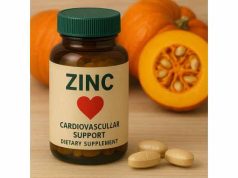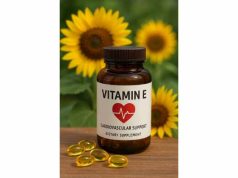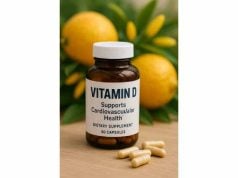
Astragalus, a centuries-old botanical staple in Traditional Chinese Medicine, has gained increased recognition for its potential to bolster heart health and lower the odds of developing cardiovascular issues. With naturally occurring antioxidant and anti-inflammatory compounds, astragalus may help stabilize blood pressure, optimize cholesterol, and protect arterial walls. Whether you aim to strengthen your heart’s resilience or support an existing wellness plan, this adaptable herb offers an intriguing path toward improved cardiovascular function. The following sections explore the origins of astragalus, detail how it works within the body, summarize current research, and provide practical advice on dosage and safe use for cardiovascular advantages.
Table of Contents
- Comprehensive Overview: Astragalus’s Origins and Core Components
- Underlying Mechanisms: How Astragalus Works
- Documented Gains for Heart and Vascular Function
- Recommended Dosage, Practical Uses, and Safety Guidelines
- Astragalus FAQ: Quick Solutions to Common Inquiries
- References and Scholarly Sources
Comprehensive Overview: Astragalus’s Origins and Core Components
Astragalus, often referred to by its botanical name Astragalus membranaceus, is an herb native to the northern provinces of China and nearby regions in Asia. For centuries, it has been a staple in Traditional Chinese Medicine (TCM) thanks to its reputed ability to increase vitality, support immune function, and preserve long-term health. Additionally, the herb’s use has spread globally over the past several decades, culminating in numerous contemporary studies exploring its physiological effects, especially concerning heart health.
Historical Roots and Traditional Use
In TCM, astragalus is called “Huang Qi,” translating roughly to “yellow leader,” pointing to the characteristic hue of its interior root and its foundational role in many tonic formulas. Traditional healers have long believed that astragalus enhances “qi,” or vital energy, supporting holistic body resilience. Typically, it has been prescribed to strengthen the spleen and lungs, boost resistance to infections, and aid patients experiencing fatigue or chronic low energy. Over time, TCM practitioners also recommended astragalus for assisting those with irregular heart rhythms, fluid retention, and symptoms indicating circulatory imbalances, foreshadowing modern research into its cardiovascular applications.
Plant Description and Cultivation
Astragalus belongs to the legume family, recognizable by its thin, fibrous roots that hold most of the plant’s therapeutic constituents. Cultivators in Asia typically harvest the roots of plants that have grown for four or more years, a practice believed to produce higher levels of active components. After harvesting, the roots are dried and sliced. They can be used in decoctions, extracts, or ground into powders. Recent agricultural initiatives have focused on consistent standardization, ensuring consumers worldwide can access astragalus with reliable quality.
Key Phytochemicals
Researchers attribute astragalus’s health-promoting effects to an assortment of bioactive molecules. Some notable compounds include:
- Polysaccharides: Known for immune-modulating properties and potential protective roles against oxidative stress.
- Triterpenoid Saponins (Astragalosides): Implicated in supporting heart contractility, reducing inflammation, and guarding cells from damage.
- Flavonoids: Potent antioxidants that help neutralize free radicals and stabilize cell membranes.
- Amino Acids and Trace Minerals: Provide additional nutritional support and may complement the herb’s main bioactive elements.
Forms of Supplementation
Astragalus is typically consumed in a few primary formats:
- Traditional Decoctions: The dried root is boiled in water, often alongside other complementary herbs, creating a broth consumed as a tonic.
- Capsules and Tablets: Provide measured doses, often standardized for specific astragaloside content, making it easy to monitor daily intake.
- Tinctures or Extracts: Concentrated liquid forms may be suitable for individuals who prefer adjustable dosing or find swallowing pills challenging.
- Powders: Readily mixed into teas, smoothies, or even soups, allowing integration into daily dietary routines.
Modern Adaptations
While astragalus retains its cultural heritage as a Qi-balancing herb, modern practitioners and patients have expanded its use into areas such as immune support, stress adaptation, and heart health. Studies investigating astragalus for Heart Health emphasize not only its antioxidant properties but also potential roles in moderating blood pressure, optimizing lipid metabolism, and stabilizing heart rhythms. This renewed interest ensures ongoing exploration and product innovation, delivering astragalus to health-oriented consumers worldwide in forms appropriate to diverse lifestyles.
Relevance to Cardiovascular Wellness
The existing synergy of anti-inflammatory, antioxidative, and metabolic-regulating attributes aligns well with the needs of maintaining a healthy cardiovascular system. Observational evidence suggests that consistent use of astragalus may keep arteries more elastic, help preserve balanced blood pressure, and protect heart tissue from stress-induced damage. These protective benefits, when paired with an active lifestyle and a nutrient-rich diet, make astragalus an intriguing candidate in strategies focused on preventing or alleviating heart ailments.
By detailing its history, core components, and adoption in modern wellness programs, we lay the groundwork for understanding how astragalus can meaningfully contribute to heart health. In the forthcoming section, we delve deeper into the mechanics behind these observed benefits, illustrating precisely how astragalus exerts an effect on the cardiovascular system.
Underlying Mechanisms: How Astragalus Works
Astragalus’s broad utility in heart health and disease prevention stems from its multifaceted biochemical actions. Its well-documented antioxidant, anti-inflammatory, and immunomodulatory properties integrate to deliver a protective network around the cardiovascular system. Understanding how these mechanisms operate can highlight why astragalus for Vascular Support has grown in popularity, prompting further interest in clinical validation.
Antioxidant Defense
Oxidative stress—where free radicals accumulate and outpace the body’s antioxidant defenses—is a leading cause of endothelial damage and plaque formation. The flavonoids and saponins in astragalus exert strong free radical scavenging abilities, thus:
- Protecting Arteries: By neutralizing reactive oxygen species, astragalus helps maintain arterial wall integrity, safeguarding against premature aging or atherosclerotic lesions.
- Enhancing Endogenous Enzymes: Preliminary studies suggest that astragalus may upregulate enzymes like superoxide dismutase (SOD) and catalase, boosting the body’s internal antioxidant capacity.
Anti-inflammatory Pathways
Chronic inflammation sits at the heart of many cardiovascular conditions, including hypertension and plaque buildup. Astragalus helps to mitigate this process through:
- Cytokine Modulation: Certain components, particularly polysaccharides, can inhibit the overproduction of inflammatory cytokines (e.g., IL-6, TNF-α), thus lowering systemic inflammation.
- NF-κB Inhibition: NF-κB is a transcription factor that spurs inflammatory responses in cells. Astragalus’s bioactive compounds can reduce NF-κB activation, thus decreasing stress on blood vessels.
Lipid and Cholesterol Regulation
An imbalanced lipid profile—characterized by elevated LDL cholesterol or triglycerides—significantly raises heart disease risk. Astragalus may help rectify these disruptions by:
- Improving HDL/LDL Ratio: Early findings indicate that astragalus supplementation can modestly elevate HDL (“good”) cholesterol while limiting LDL oxidation.
- Supporting Healthy Liver Function: The liver is the central organ for cholesterol synthesis and metabolism. Astragalosides could enhance hepatic protective effects, improving lipid processing and reducing the chance of excessive cholesterol accumulation.
Blood Pressure Support
Research exploring astragalus for Cardiovascular Health also delves into its impact on blood pressure:
- Vasodilation Promotion: By preserving nitric oxide (NO) availability and restricting oxidative damage, astragalus fosters vasodilation, a crucial factor for maintaining normal blood pressure.
- Balancing the Renin-Angiotensin System: Although less studied, there are suggestions that active compounds in astragalus may help inhibit angiotensin-converting enzyme (ACE) activity, thereby contributing to a stable blood pressure environment.
Cardiac Function Enhancement
Beyond its role in mitigating risk factors, astragalus might directly promote heart muscle health:
- Inotropy: Some data show that astragalus extract can influence the contractility of cardiac muscle, potentially improving the heart’s pumping efficiency.
- Arrhythmia Prevention: Preliminary models indicate that by lowering inflammation and oxidative stress, astragalus could reduce the likelihood of irregular heart rhythms.
Immunomodulatory Influence
Chronic systemic inflammation often blurs the lines between immunity and heart health. Astragalus’s immunomodulatory capacity does not just stimulate white blood cell function but can also quell autoimmune responses, preventing excessive inflammation that damages blood vessels. This balancing act underscores astragalus’s integrative approach—supporting the immune system while avoiding overactivation.
Stress Response and Adaptation
An overstressed body, whether from psychological or physiological factors, faces an elevated load on the cardiovascular system. By acting as an adaptogen, astragalus may help:
- Regulate Hormonal Cascades: Adaptogens typically help modulate the release of cortisol and other stress hormones. Keeping these levels stable indirectly lightens the burden on blood vessels and the heart.
- Encourage Resilience: Individuals with better stress handling capacity often demonstrate more stable blood pressure, less endothelial dysfunction, and improved heart function overall.
These intertwined pathways form a comprehensive outlook on how astragalus enhances vascular support and cardiac resilience. Coupled with healthy dietary habits and lifestyle choices, these deep-rooted effects illustrate why many practitioners advocate astragalus Helps Cardiovascular Function as an integral part of preventative or adjunctive heart care. The following section delves into specific clinical findings and research data that support these mechanistic theories.
Documented Gains for Heart and Vascular Function
Empirical research on astragalus’s cardiovascular impact spans cell culture experiments, animal studies, and a growing number of human clinical trials. These investigations consolidate astragalus’s reputation as a beneficial adjunct in maintaining heart health, lowering risk factors, and possibly even addressing mild to moderate cardiovascular conditions. Below are some highlights from the scientific literature documenting the herb’s ability to bolster the heart and circulatory system.
Enhancing Arterial Elasticity
- Flow-Mediated Dilation (FMD) Studies: FMD serves as a clinical measure for arterial flexibility. Pilot human studies involving astragalus supplementation have shown modest yet statistically significant improvements in FMD, suggesting better vascular responsiveness and decreased arterial rigidity.
- Protection Against Atherosclerosis: Animal trials replicate these findings, indicating that astragalus may inhibit the development of arterial lesions by curbing oxidative damage and inflammatory triggers that lead to plaque formation.
Blood Pressure Management
- Mild to Moderate Hypertension: In some smaller-scale clinical trials, patients with slightly elevated blood pressure observed a noticeable decrease in systolic and diastolic readings after consistent astragalus usage over periods of 8–12 weeks.
- Complementary Action: The beneficial shift in blood pressure often correlates with reduced stress hormones and improved nitric oxide bioavailability, depicting an interconnected approach rather than a singular, aggressive mechanism.
Cholesterol and Lipid Metabolism
- LDL and Total Cholesterol: Some research demonstrates that astragalus can help diminish LDL oxidation, a critical step in atheroma development. While broad-based LDL-lowering results remain modest, the anti-oxidative shielding against “bad” cholesterol is well-documented.
- Elevating HDL: In parallel, certain participants experienced incremental increases in HDL cholesterol, which scavenges excess cholesterol from tissues and the vascular system.
Heart Rhythm Stabilization
- Arrhythmia and Palpitations: Preliminary evidence hints that astragalus’s anti-inflammatory and antioxidant actions could mitigate arrhythmic tendencies in vulnerable individuals. By quelling sources of cellular stress in heart muscle cells, astragalus may reduce the likelihood of abnormal electrical impulses.
- Synergy with Conventional Therapies: In integrative medical practices, astragalus is sometimes combined with standard anti-arrhythmic drugs. Observed benefits point toward decreased severity of palpitations or lower episodes of irregular heartbeats among certain patient groups.
Potential for Post-Event Recovery
- Myocardial Infarction: While conclusive large-scale trials are limited, some smaller studies suggest that astragalus supplementation may support recovery in patients who have endured a heart attack. The hypothesized benefits involve faster normalization of inflammatory markers, improved energy, and better post-event fatigue management.
- Heart Failure Management: Also under investigation are astragalus’s roles in moderate heart failure cases, where limited data hint at improved exercise tolerance and decreased fluid retention. Additional robust trials, however, are necessary to form definitive guidelines.
Illustrative Clinical Trials
- Astragalus and Mild Hypertension: A 10-week pilot with about 50 participants reported that those taking astragalus extract saw an average drop of 5–10 mmHg in systolic readings compared to a placebo group.
- Coronary Artery Disease: In a double-blind format, some patients exhibited enhanced stamina and improved left ventricular ejection fractions, indicating potentially better pumping performance.
- Hyperlipidemia: Another small trial revealed that individuals supplementing with a standardized astragalus formulation had a modest decline in total cholesterol (around 5–7%) over 12 weeks, accompanied by lowered oxidative stress markers.
Integration with Overall Cardiac Wellness
Beyond specific metrics, consistent astragalus use ties in seamlessly with broader heart-care regimens. Patients focusing on stress management, balanced nutrition, and moderate exercise often find that astragalus provides an incremental boost, likely derived from its synergy of immunomodulatory, antioxidant, and anti-inflammatory mechanisms. Notably, it is not a standalone cure but a supportive measure that can enhance standard therapies or wellness strategies.
Collectively, these documented outcomes form a persuasive narrative for astragalus as an accessible, nature-derived supplement that addresses an array of cardiovascular needs. Still, as with any herb, individualized responses vary. Interested users should remain mindful of dosage ranges, medication interactions, and underlying health conditions. These considerations are unpacked in the next section, which details best practices for safe and effective astragalus usage.
Recommended Dosage, Practical Uses, and Safety Guidelines
Astragalus typically boasts a favorable safety profile, but optimal outcomes for heart health hinge on carefully selecting a suitable formulation, adhering to dosage recommendations, and understanding any potential contraindications. Below are in-depth guidelines to support confident and beneficial astragalus supplementation.
Common Supplement Forms
- Capsules / Tablets
- Often standardized to ensure consistent levels of astragalosides or polysaccharides.
- Preferred for precise dosing, minimal flavor distractions, and portability.
- Tinctures or Fluid Extracts
- Offer flexible dosing; typically measured by drops or milliliters.
- May taste slightly earthy or sweet, mixing easily into teas or other drinks.
- Powdered Root
- Can be integrated into soups, broths, or smoothies; used by those seeking a more traditional approach or culinary variety.
- Quality can vary; verifying the supplier’s standards helps maintain efficacy.
- Astragalus-Infused Tea
- Typically yields mild concentrations; suitable for individuals looking for light daily intake or complementary flavors in herbal tea blends.
Dosage Recommendations
- General Cardio Support: 500 mg to 1,000 mg of a standardized astragalus extract, once or twice daily, is a common regimen for those aiming to foster basic vascular health.
- Therapeutic Range: Some studies targeting hypertension, lipid issues, or more pronounced cardiovascular challenges employ doses up to 2,000–3,000 mg daily in split servings, typically under professional guidance.
- Long-Term Use: Astragalus is traditionally seen as a tonic herb safe for continuous use; however, periodic assessments of heart function or lipid profiles can measure progress and refine dosage.
Timing and Method of Administration
- Meals vs. Empty Stomach: Astragalus assimilation is generally flexible. In practical terms, combining with meals may curtail gastrointestinal upset for sensitive users, though many prefer morning or midday doses to align with normal energy rhythms.
- Combining with Other Supplements: Astragalus’s synergy with antioxidants like vitamin C or coenzyme Q10 can amplify protective outcomes for the cardiovascular system. Meanwhile, pairing with adaptogenic herbs such as ginseng or ashwagandha can improve overall stress resilience.
- Steady Intake: Consistency fosters cumulative benefits. Astragalus’s heart-oriented effects often manifest after weeks of regular usage, meaning sporadic consumption might not yield notable improvements.
Potential Adverse Effects
- Minor GI Upset: Occasional complaints include mild gas, bloating, or loose stools. These usually subside with dosage adjustments or by taking the supplement alongside meals.
- Allergic Reactions: Rare but possible. Symptoms can include rashes or itching; discontinue use if such reactions emerge, and consult a medical professional.
- Interactions with Autoimmune Disorders: Because astragalus can stimulate immune activity, caution is advised if you have autoimmune conditions or take immunosuppressive drugs.
Contraindications and Interactions
- Concurrent Medications: Those on blood pressure regulators or anticoagulants should discuss astragalus with a healthcare provider, given its potential to modestly influence circulatory parameters.
- Post-Transplant Patients: The immune-stimulating facet of astragalus might conflict with required immunosuppression regimes.
- Pregnancy and Nursing: Formal research is limited; pregnant or breastfeeding women should seek qualified guidance before initiating usage.
Quality Assurance
To avoid adulteration or contaminants:
- Source Verification: Reputable brands employ standardized extraction processes and third-party lab testing.
- Astragaloside Content: Look for extracts specifying the percentage of astragalosides, ensuring consistent efficacy.
- Organic or Clean Farming: As with many botanicals, organically grown astragalus fosters confidence in purity and environmental responsibility.
Practical Tips to Maximize Benefits
- Lifestyle Alignment: Pair astragalus supplementation with balanced meals rich in fiber and antioxidants, plus regular light-to-moderate exercise.
- Stress Management: Since chronic stress drives cardiovascular strain, combining astragalus’s adaptogenic qualities with mindfulness or relaxation techniques yields better results.
- Monitoring: Tracking blood pressure, cholesterol levels, and any noticeable changes in energy or well-being can guide dosage adjustments and highlight astragalus’s impact.
These guidelines provide a structured approach to astragalus usage, with heart health as the focal objective. However, personal responses vary, and the herb is but one piece of a broader cardiovascular wellness puzzle that should also include dietary, lifestyle, and medical interventions when appropriate. The next section addresses frequently asked questions to further clarify real-world usage scenarios and potential challenges.
Astragalus FAQ: Quick Solutions to Common Inquiries
How does astragalus specifically benefit heart health?
Astragalus offers antioxidant and anti-inflammatory protection that supports arterial flexibility, helps manage cholesterol, and may regulate blood pressure. Together, these effects maintain smoother blood flow and guard against plaque buildup, reinforcing overall cardiovascular resilience.
Can I combine astragalus with other heart-focused supplements?
Yes. Many users pair astragalus with coenzyme Q10, omega-3 fats, or hawthorn for synergistic benefits. However, always consult a healthcare professional to confirm compatibility, especially if you are already on prescription medications or have preexisting cardiac conditions.
How soon will I notice improvements after starting astragalus?
Results vary. Some individuals detect subtle benefits—like steadier energy or mild drops in blood pressure—within a few weeks. More pronounced changes in cholesterol levels or cardiovascular markers may take eight weeks or longer, depending on consistent usage and personal health factors.
Is astragalus safe for long-term use?
Astragalus is generally considered safe for extended periods, particularly in moderate doses. Many people in Traditional Chinese Medicine have taken it regularly for its tonic effects. Nonetheless, if you notice unusual symptoms or interactions with medications, discontinue use and consult a healthcare practitioner.
Who should avoid or be cautious when using astragalus?
Individuals taking immune-suppressing drugs, those who recently underwent organ transplants, or people with severe autoimmune disorders should seek medical advice. Additionally, pregnant or breastfeeding women should consult a professional, as comprehensive safety data for these groups remains limited.
References and Scholarly Sources
- Peer-Reviewed Journals and Clinical Trials
- Journal of Ethnopharmacology and Phytotherapy Research: Publish detailed findings on astragalus’s chemical composition, heart benefits, and integration into holistic protocols.
- PubMed Database (National Library of Medicine): Contains numerous studies exploring astragalus’s effect on blood pressure, inflammatory cytokines, and lipid profiles.
- Traditional Chinese Medicine Texts
- Ancient compendiums, including the Shennong Ben Cao Jing, outline astragalus’s place as a key tonic herb, referencing early observations of its support for cardiovascular function and organ health.
- Organizations and Expert Panels
- World Health Organization (WHO): Offers broader insight into global usage of traditional herbs, including guidelines on quality control and safe preparation.
- Integrative Medicine Institutes and Conferences: Provide updated, peer-reviewed discussions on astragalus, bridging conventional cardiology with evidence-based alternative therapies.
- Academic Institutions
- Universities in China, Japan, and Korea frequently lead research focusing on astragalus’s immunomodulatory and antioxidant capacities, often publishing findings in global scientific journals.
- Collaborative efforts with Western universities further refine extraction methods, standardization of astragalosides, and clinical trial designs.
- Books and Systematic Reviews
- Monographs on herbal medicine (e.g., from the European Scientific Cooperative on Phytotherapy [ESCOP]) summarize historical uses, clinical data, and recognized safety guidelines for astragalus.
- Systematic reviews consolidate multiple randomized controlled trials to present an overarching evaluation of astragalus’s role in cardiovascular support.
Disclaimer:
The content provided here is for educational purposes only and does not substitute for professional medical advice. Always consult a qualified healthcare professional before starting any new supplement, including astragalus, particularly if you have preexisting conditions or are taking prescription medications.
If you found this article useful, please share it on Facebook, X (formerly Twitter), or your chosen social media platform. We invite you to follow us for more tips and insights on natural supplements and comprehensive approaches to heart health!






